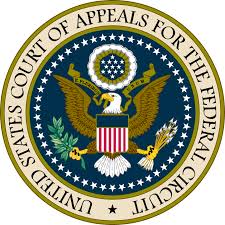 Patent plaintiffs, especially those resembling “patent trolls,” routinely sue in plaintiff-friendly forums, such as the Eastern District of Texas, or in other forums thousands of miles away from a defendant’s home base. Plaintiffs use the attendant inconveniences as leverage when pursuing quick settlements. Such venue manipulation is an item of significant concern to repeat player defendants of patent lawsuits.
Patent plaintiffs, especially those resembling “patent trolls,” routinely sue in plaintiff-friendly forums, such as the Eastern District of Texas, or in other forums thousands of miles away from a defendant’s home base. Plaintiffs use the attendant inconveniences as leverage when pursuing quick settlements. Such venue manipulation is an item of significant concern to repeat player defendants of patent lawsuits.
Congress considered and rejected venue reforms as part of the America Invents Act of 2011, which may be one reason such provisions are not included in current reform efforts on Capitol Hill. Another reason may be that over the last five years, the U.S. Court of Appeals for the Federal Circuit has built up a robust jurisprudence which gives defendants a fair chance at having lawsuits transferred to a more convenient forum. Our 2010 Legal Pulse post The Federal Circuit Messes with (the Eastern District of) Texas Yet Again examined a series of Federal Circuit rulings which together have provided predictable standards for judging venue transfer requests under 28 U.S.C. § 1404(a).
However, two Federal Circuit decisions issued on the same day—February 27—by the same panel of judges now threaten the prevailing clarity on patent litigation transfer of venue. In both cases, Judges Prost and Reyna affirmed the lower courts’ denial of defendants’ motions to transfer with Judge Newman twice dissenting. In re Apple Inc. originated in the Eastern District of Texas, while In re Barnes & Noble, Inc. was filed in the Western District of Tennessee. The plaintiff in In re Apple is a Luxembourg company with one employee which has a Plano, Texas subsidiary whose six employees manage the company’s patent portfolio. The plaintiff in In re Barnes & Noble registered to do business in Tennessee just before filing this suit (as well as 19 other identical suits in the same court) and is a one-employee company with a home office.
The standard federal appeals courts apply when reviewing a lower court’s denial of a transfer motion—”clear abuse of discretion”—is admittedly rather high. But we agree with the dissents in both of these cases that the balance of hardships weighed strongly in favor of transfer.
In In re Apple, the majority endorsed the district court’s rationale that Apple failed to specify which company or third-party witnesses were located in Cupertino, California or what specific sources of proof were there. In recent past opinions on venue transfer, the Federal Circuit had not required such specificity on witness and proof inconveniences. Judge Newman countered in dissent that Apple’s witness and document evidence clearly relate that everyone and everything relevant to the case are in California. She was “struck by how heavily the local interest factor favors” transfer, comparing the 13,000 people Apple employs in Cupertino to the six the plaintiff employs in Texas.
The majority performed an equally cursory review of the district court’s denial of transfer in In re Barnes & Noble. Analogous to In re Apple, all of the relevant witnesses and documents were located at Barnes & Noble’s 400-employee Palo Alto office, while the plaintiff’s sole witness was in Tennessee. The majority reasoned that the Western District of Tennessee was a more convenient venue in part because that court had 19 other suits involving the patent before it. This troubling new factor in the Federal Circuit’s venue transfer analysis could encourage plaintiffs to fill courts’ dockets with copycat lawsuits. Judge Newman did not take issue with this factor, but she was clearly influenced by the plaintiff’s pre-lawsuit business registration when considering Tennessee’s connection to the case.
Judge Newman closed her In re Barnes & Noble dissent with a statement consistent with what we mentioned above—the need for a predictable, steady jurisprudence on patent litigation venue transfer. She wrote:
Consistency of judicial ruling is no less important in procedural and discretionary matters than in questions of substantive law.
We hope that the next Federal Circuit panel to grant a writ of mandamus and review a venue transfer request bears that admonition in mind.
Also published at WLF’s Forbes.com contributor page
